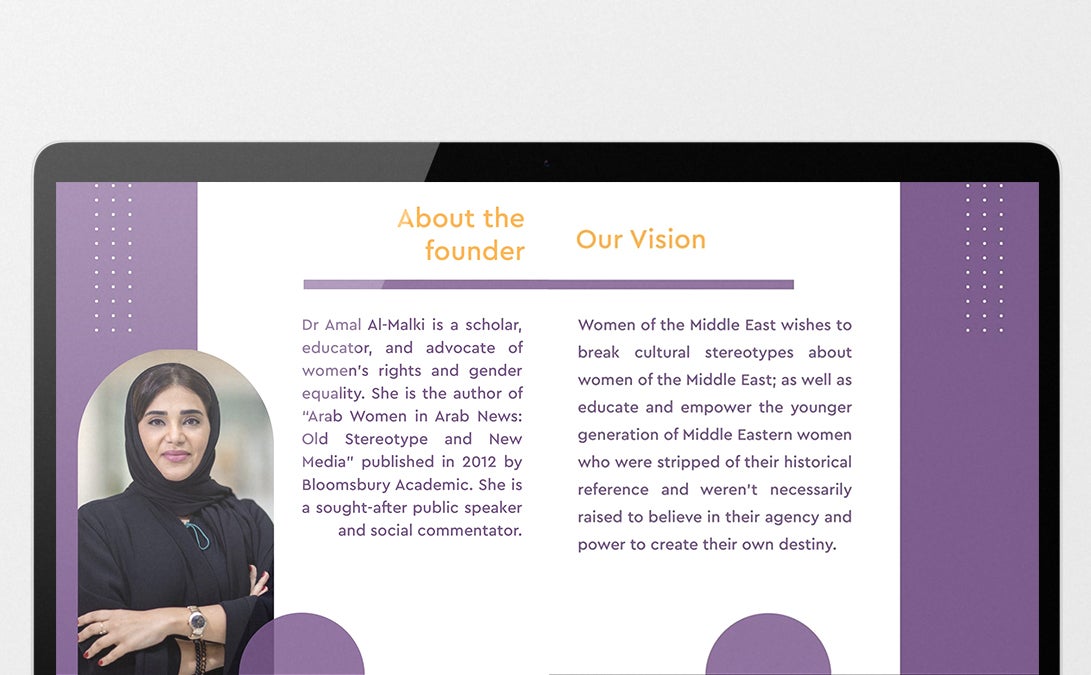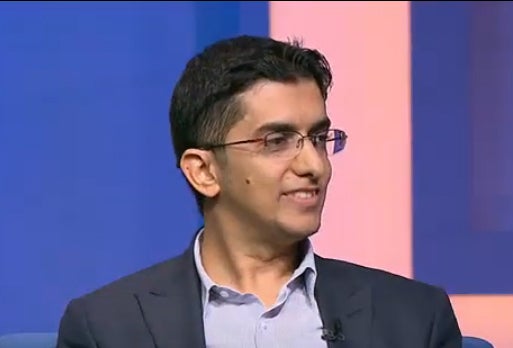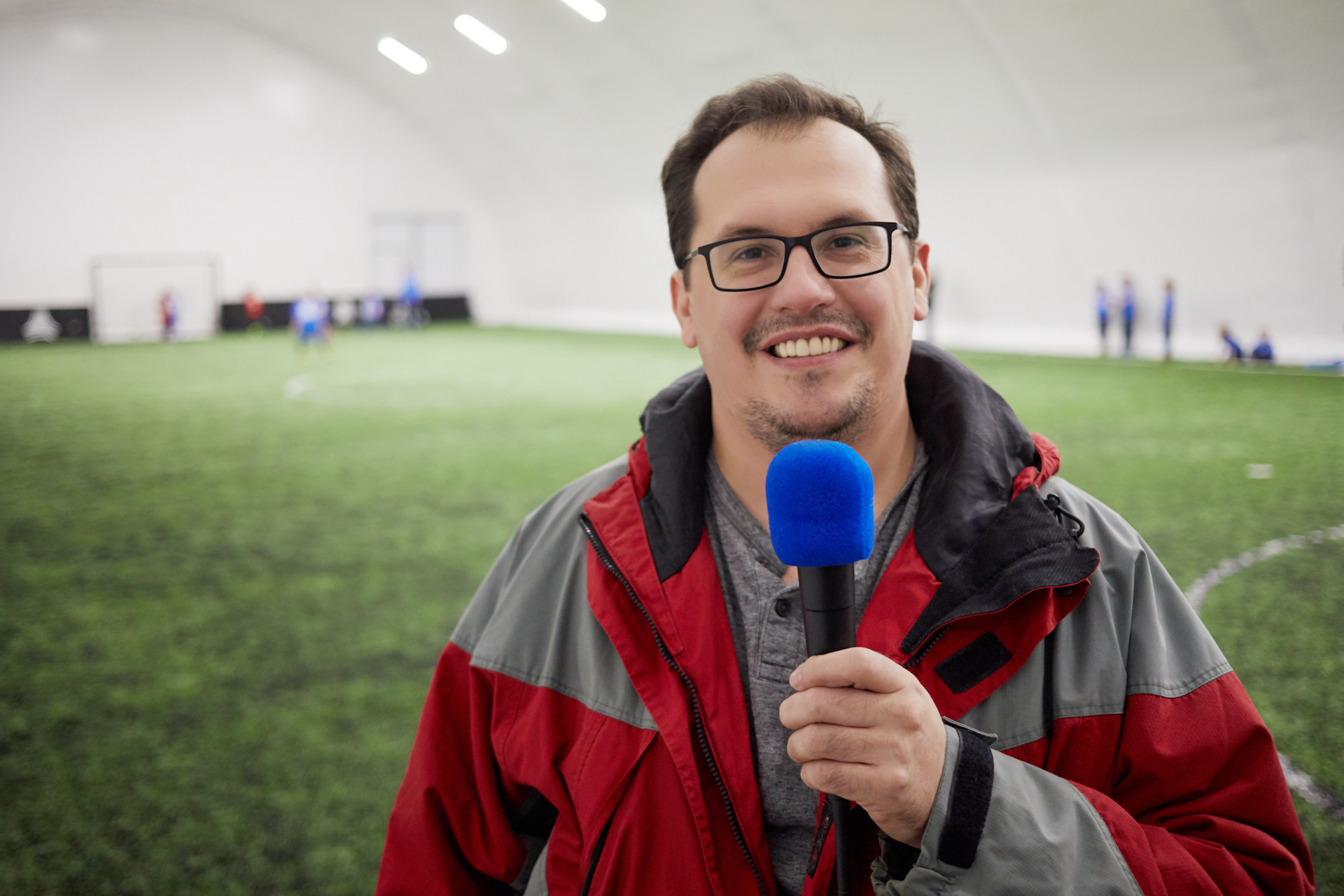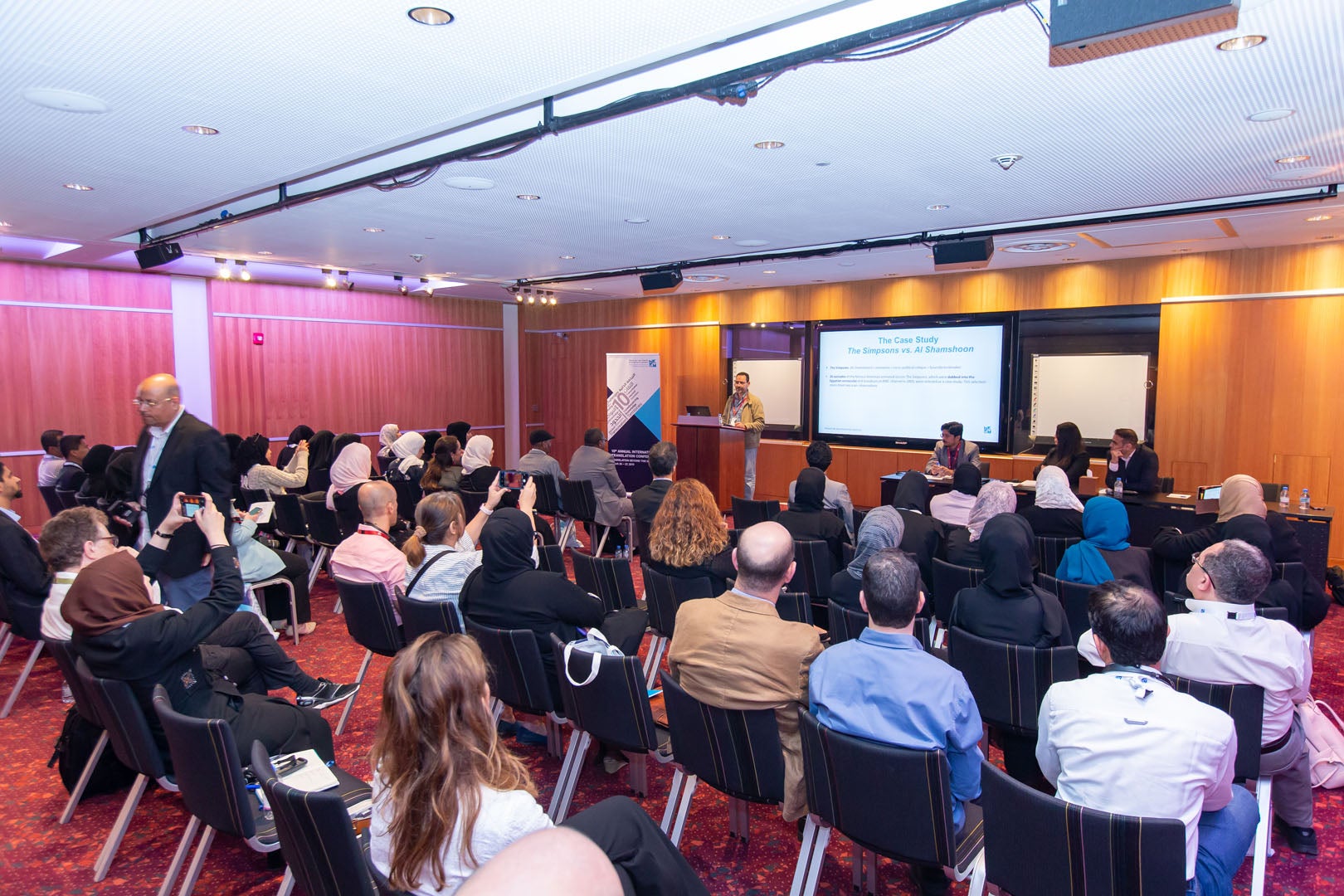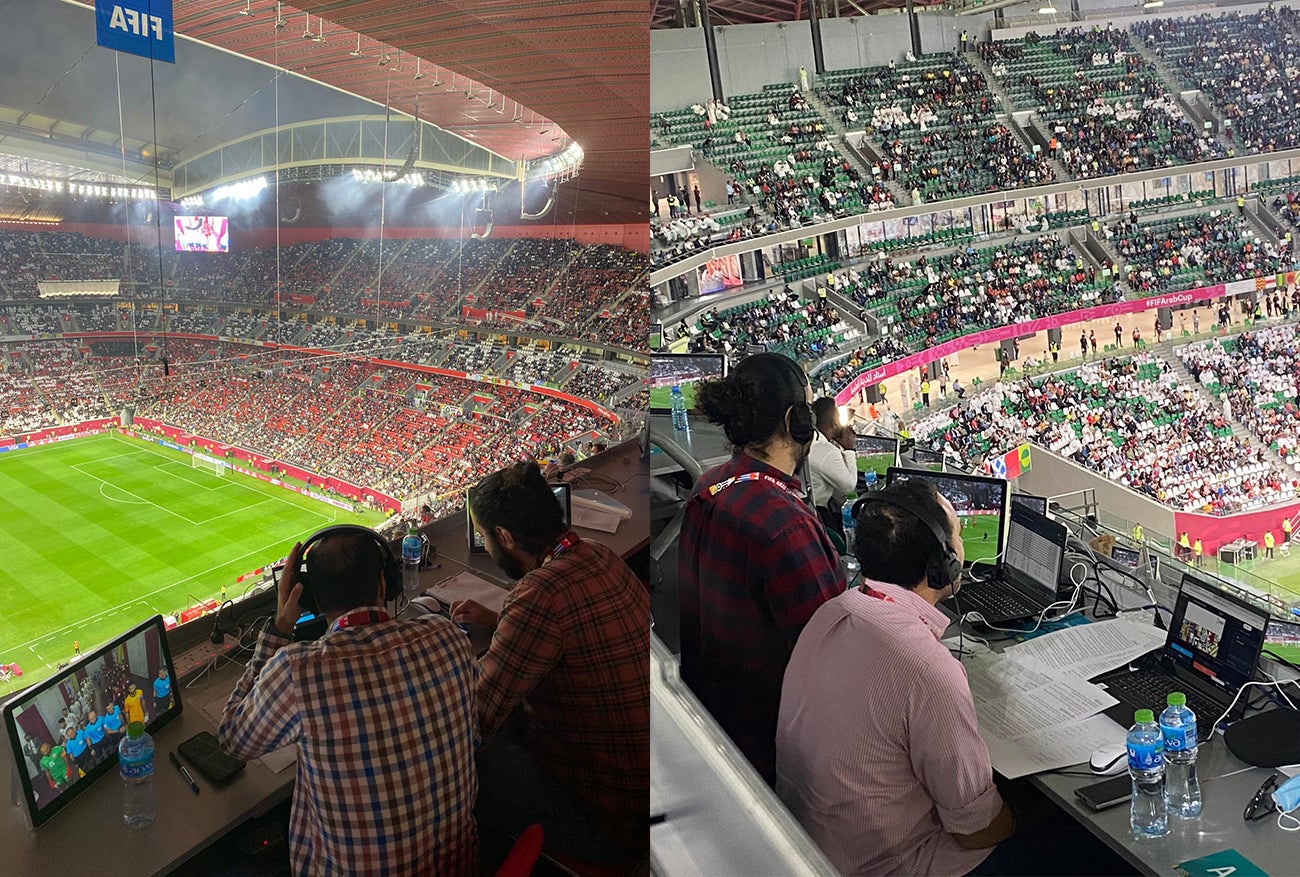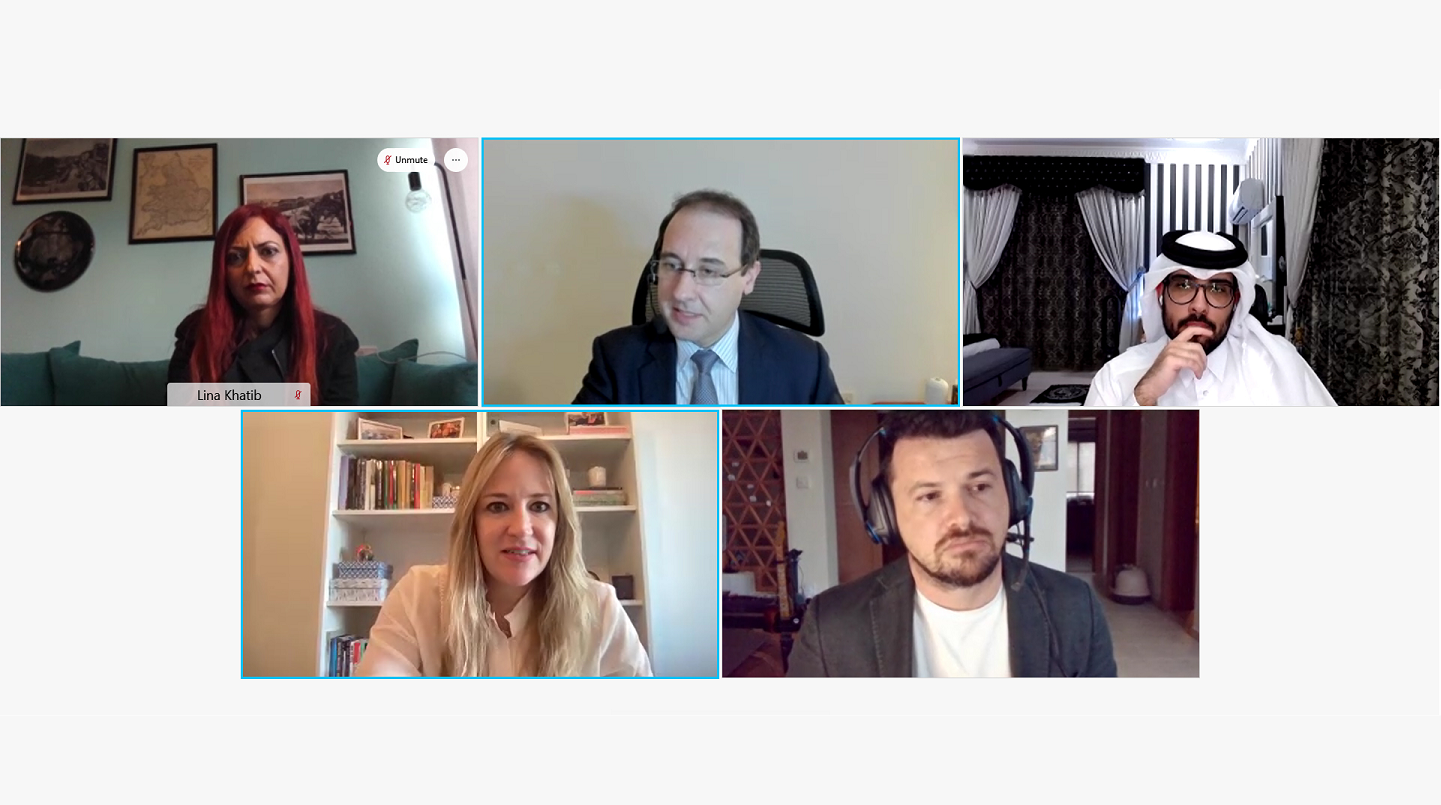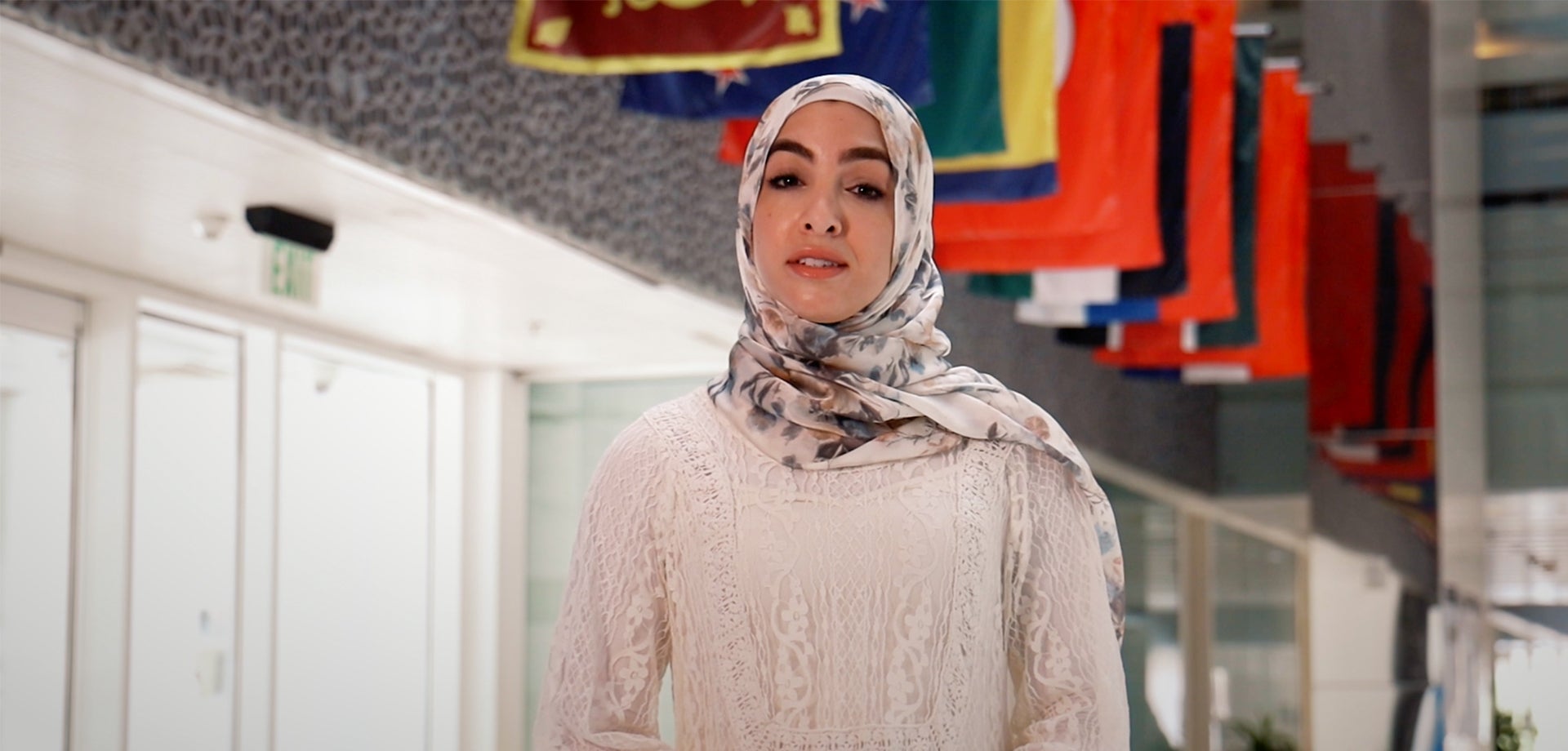
CHSS Webinar Highlights How Future Direction of Translation is Being Shaped
Regional and international translation experts discuss sociological approaches to studying translation
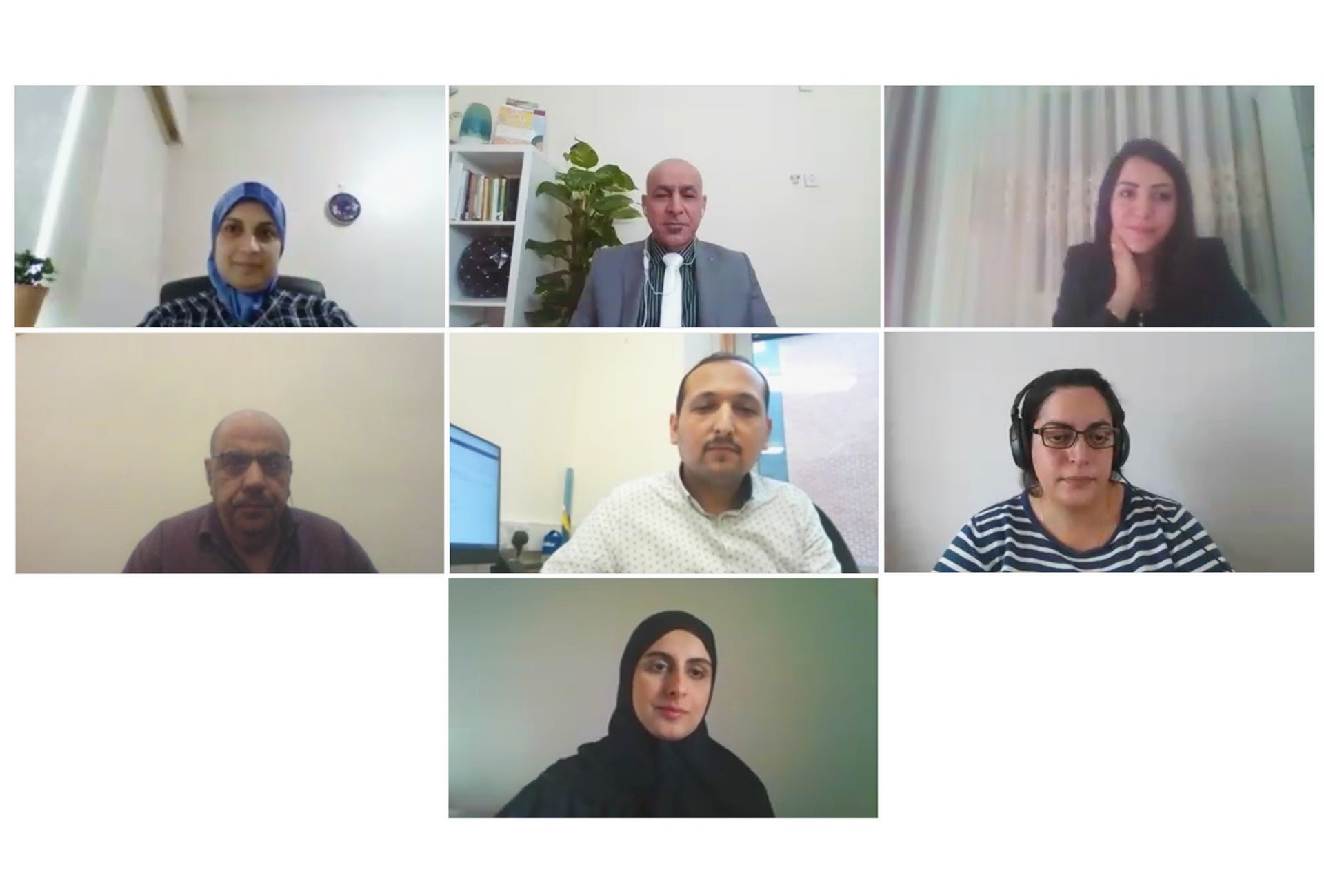
On the occasion of International Translation Day on September 30, the College of Humanities and Social Sciences (CHSS) at Hamad Bin Khalifa University (HBKU) held a webinar titled 'The Ins and Outs of Translation Theories' that shed light on how translation is shaped by the contributions of different social agents, and the implications for the future of this profession.
The webinar’s starting point was that the translation process is not a pure linguistic activity, but includes several acts that may be cultural, interpretive, normative, social, or ideological. The presence of all those dimensions has expanded the circle of translation studies, and resulted in opportunities to study it from different perspectives. Moreover, translation as a linguistic activity is performed by several social agents serving different roles, thereby contributing to shaping any translation.
The discussion was moderated by Dr. Ali Almanna, associate professor of translation, Department of Translation and Interpreting Studies, CHSS, HBKU. A panel of regional and international experts featured Dr. Kadhim Khalaf Al-Ali, professor of translation studies, University of Basra, Iraq; Dr. Areej Allawzi, associate professor of translation studies, University of Jordan; Dr. Aziza Zaher, associate professor of Arabic and translation, Durham University, United Kingdom (UK); Dr. Khadidja Merakchi, assistant professor of translation, Heriot-Watt University, UK; and Dr. Husam Haj Omar, lecturer in Arabic and translation, University of Oxford, UK.
The panelists also discussed some of the common translation theories and approaches including the growing use of sociological theories. Speakers shared their comparative perspectives on the future of translation.
Dr. Almanna commented after the webinar: “International Translation Day is a tribute to the indispensable role of professional translation in international public discourse and interpersonal communication. This webinar has aimed to put a range of ideas and approaches that can help in understanding changes facing translation in a reflective academic context. Our view is that educational and training opportunities that reflect new demands are all the more important, and that is at the core of our work at CHSS, developing highly-skilled translators and interpreters at the graduate level.”
For more information about the College of Humanities and Social Sciences, please visit chss.hbku.edu.qa
Related News
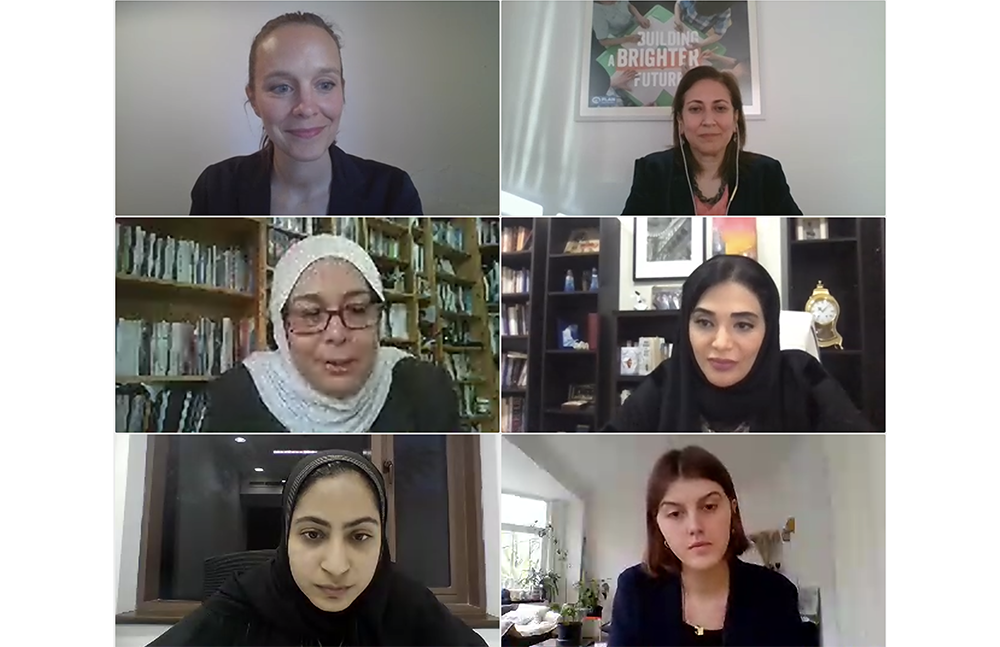
College of Humanities and Social Sciences Webinar Discusses Oxfam Report on Safety of Digital Spaces
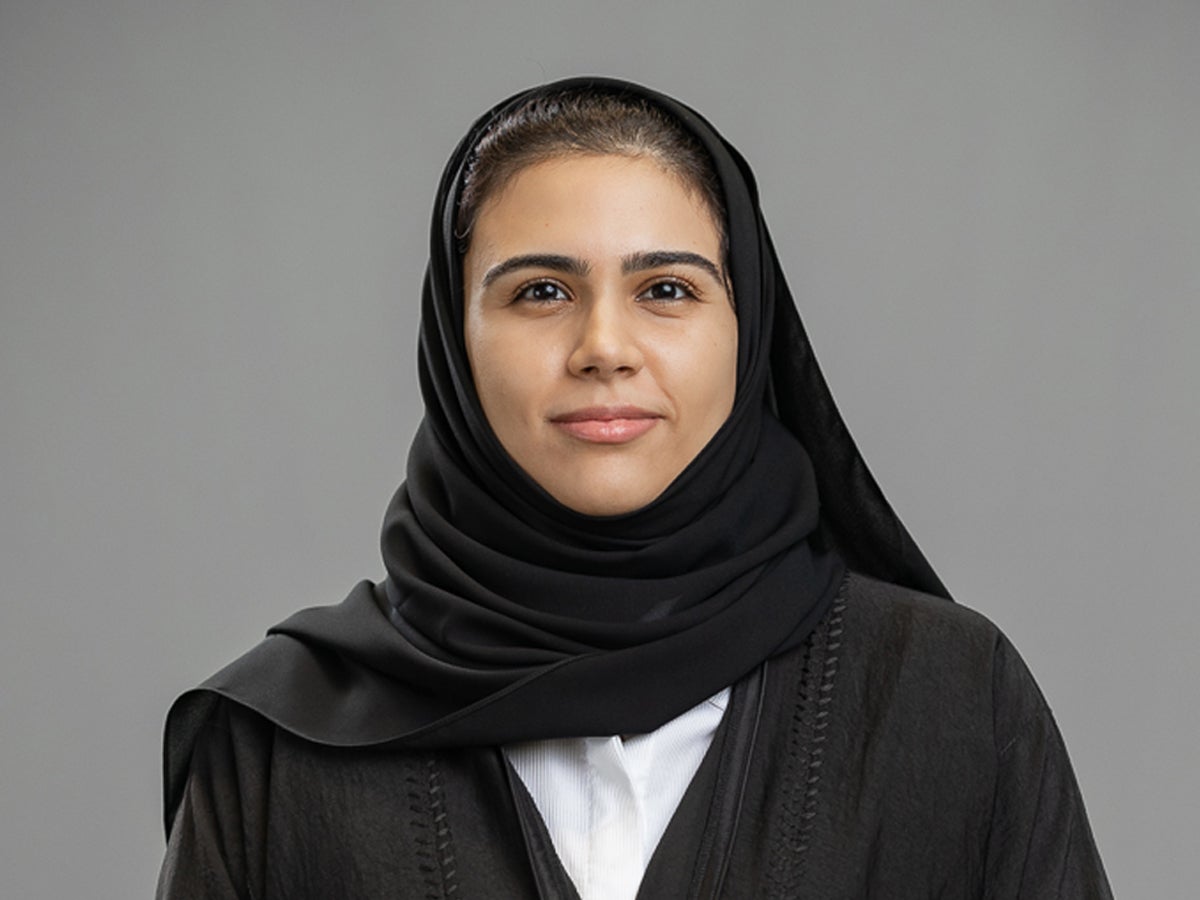
HBKU TII’s Translation and Training Center Unveils Continuing Professional Development Workshops
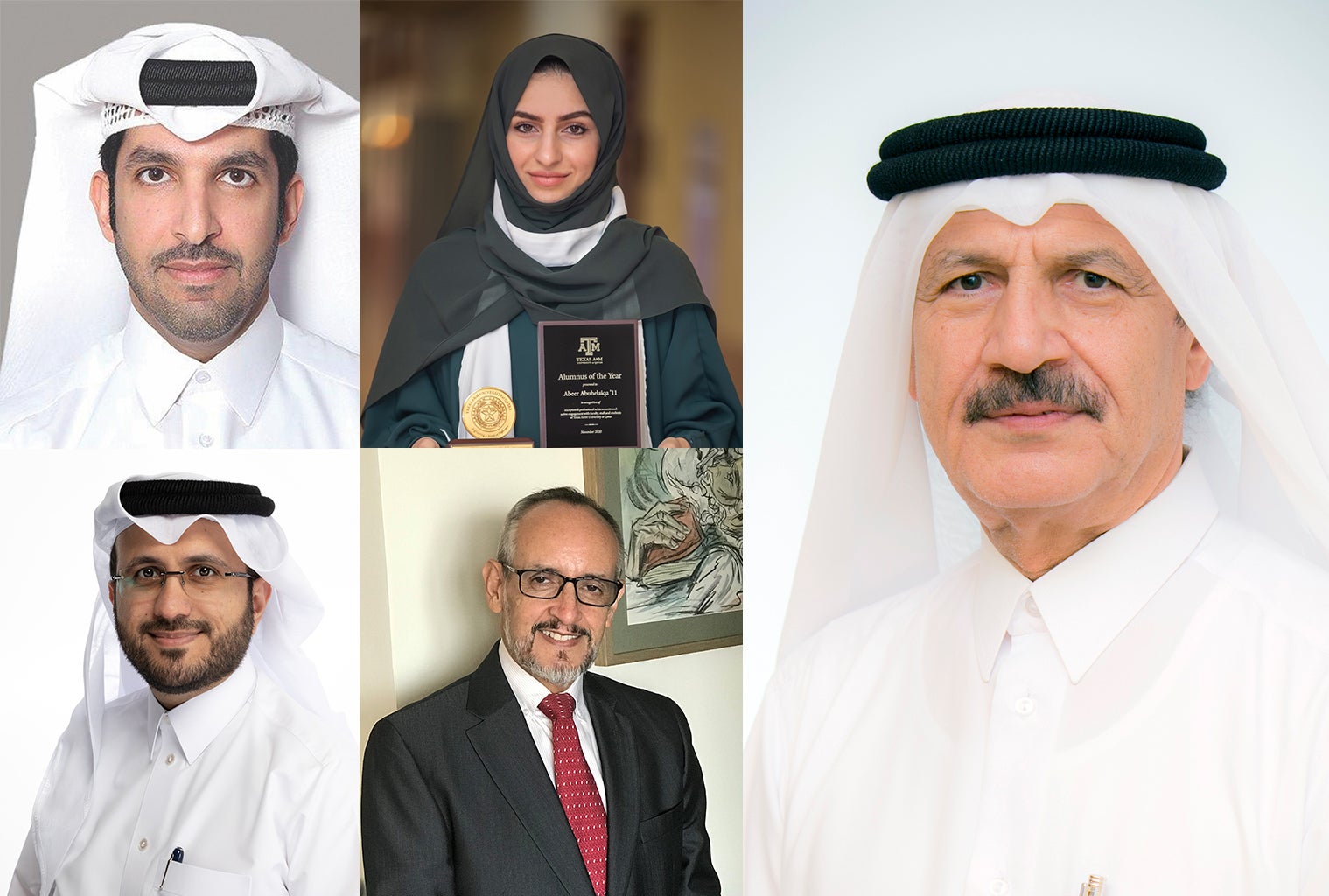
College of Humanities and Social Sciences Announces New Advisory Board Members
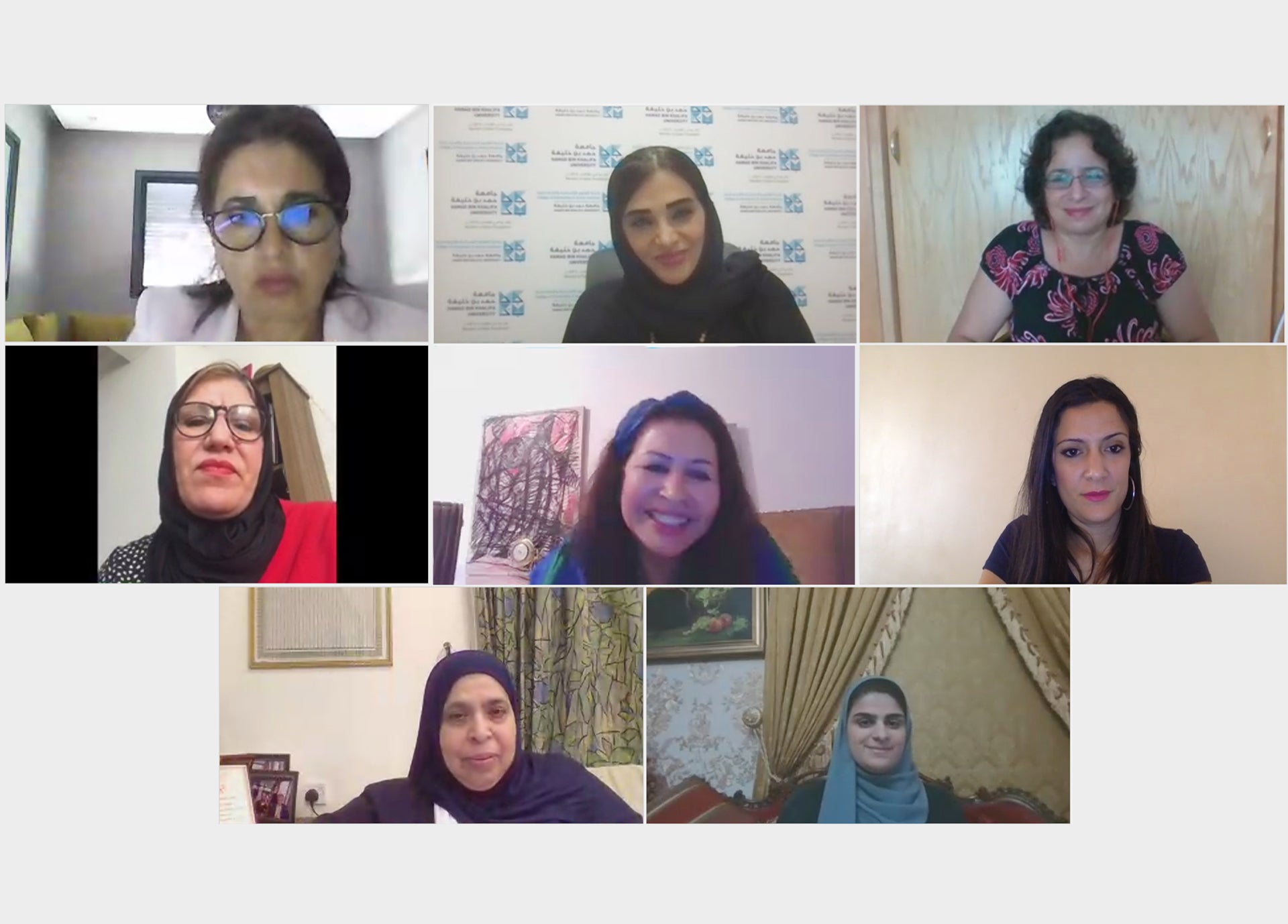
College of Humanities and Social Sciences Considers Impact of Gender Quotas on Women’s Political Participation
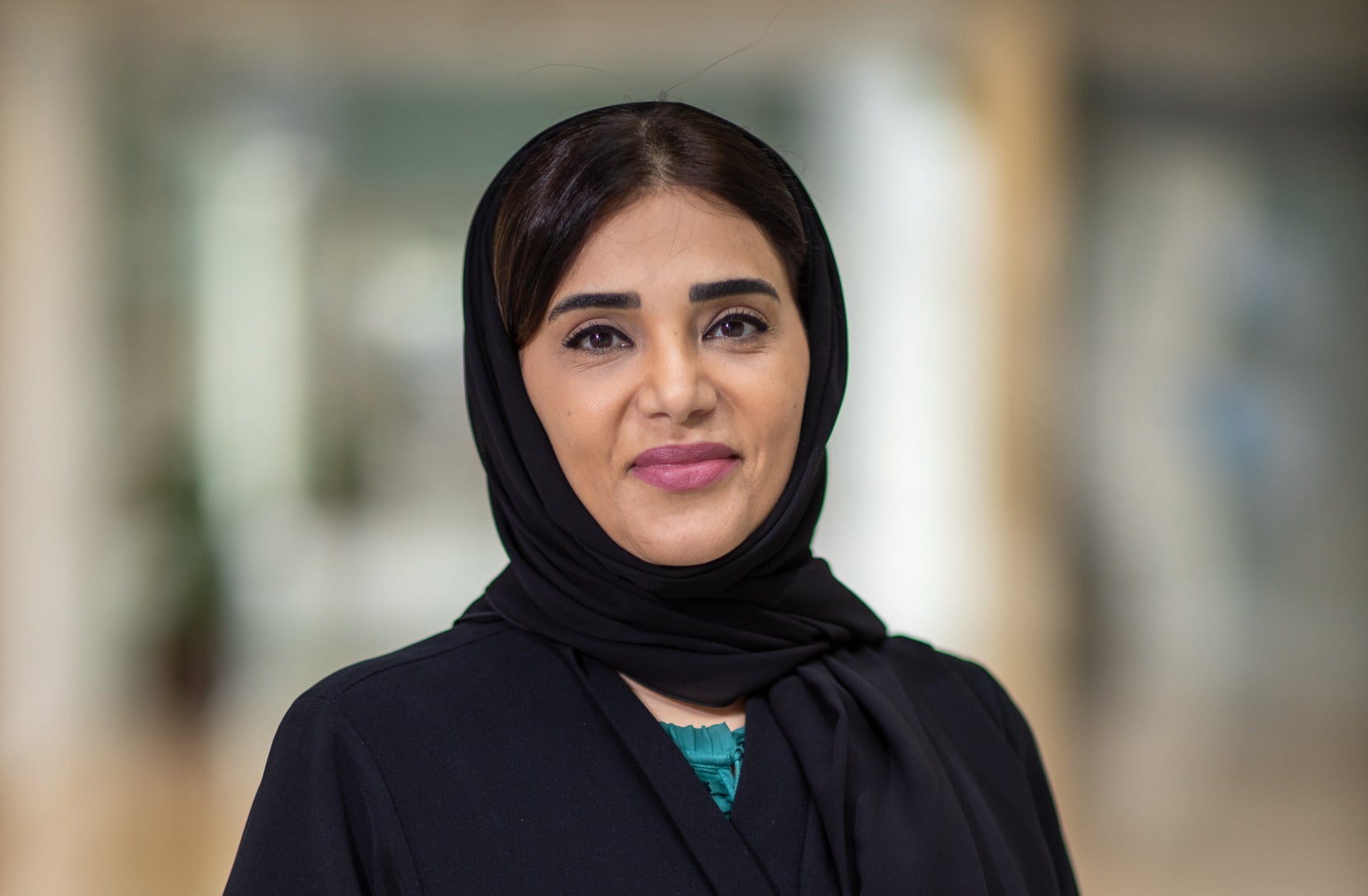
College of Humanities and Social Sciences Opens Application for High-Level Training Strengthening Qatari Women’s Political Participation
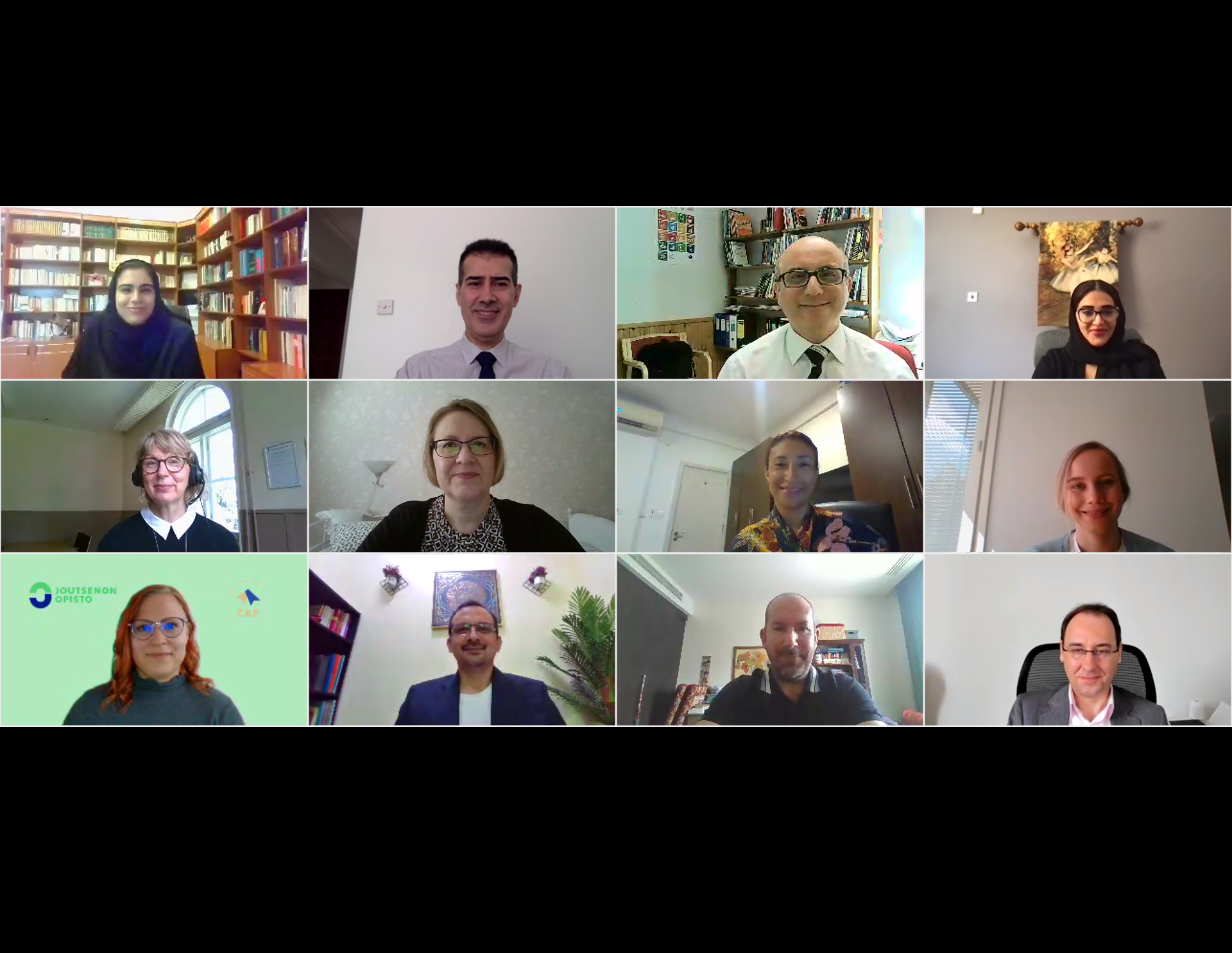
TII’s Language Center at HBKU Shares Arabic Language Expertise with Joutsenon Opisto, Finland Under New Agreement
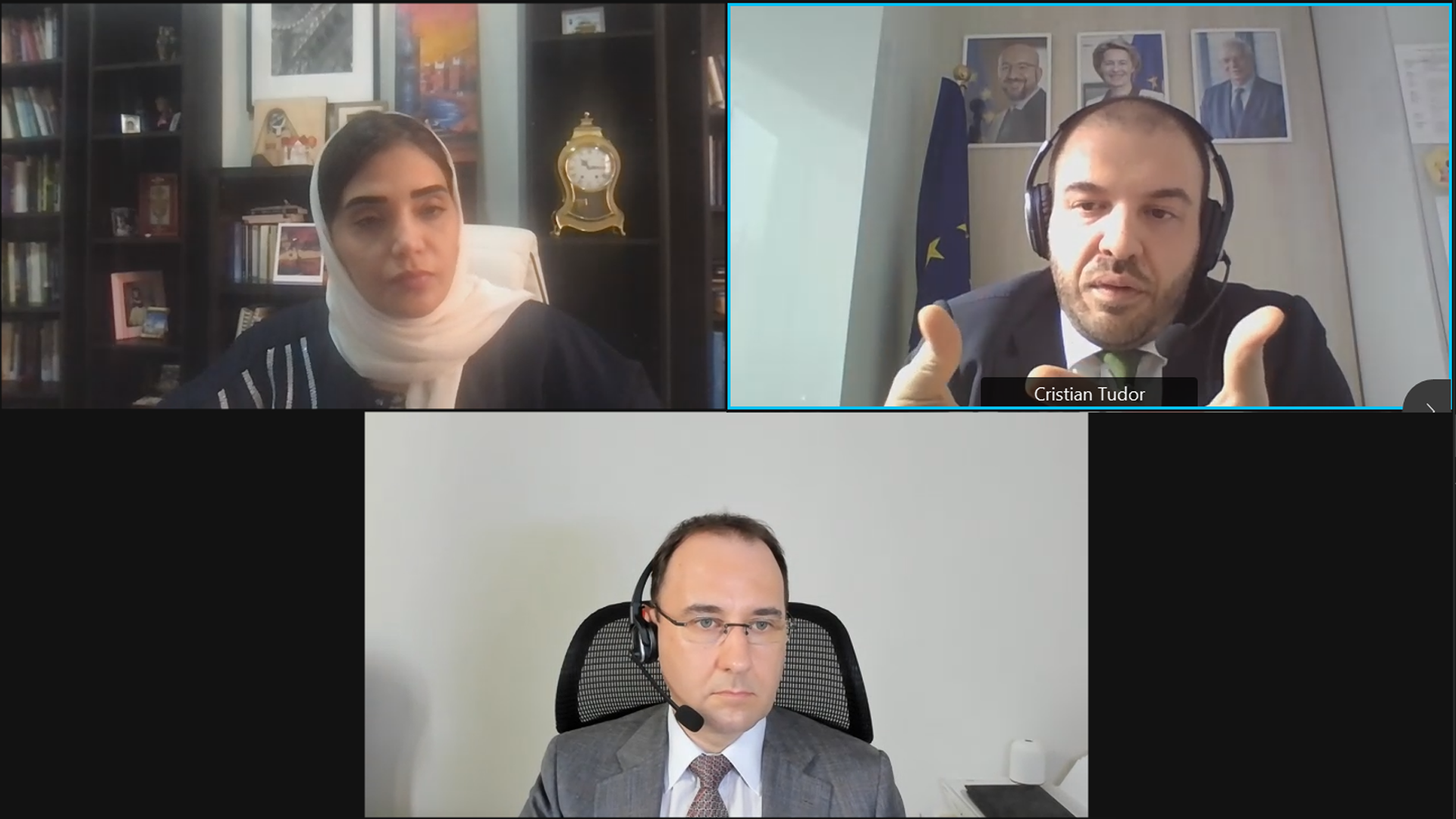
EU Ambassador Highlights Need for Youth Engagement at HBKU College of Humanities and Social Sciences Talk
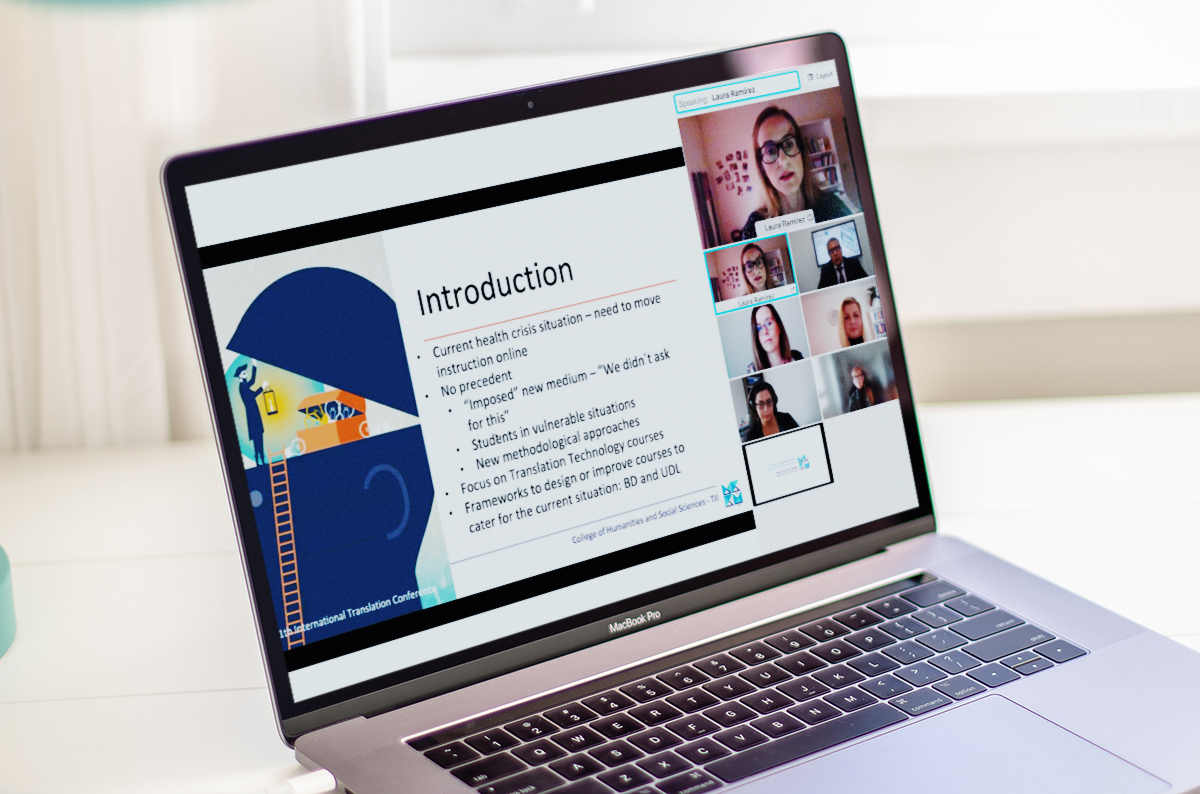
TII Hosts 11th International Translation Conference Focusing on the Impact of Accelerated Digitization During the Pandemic
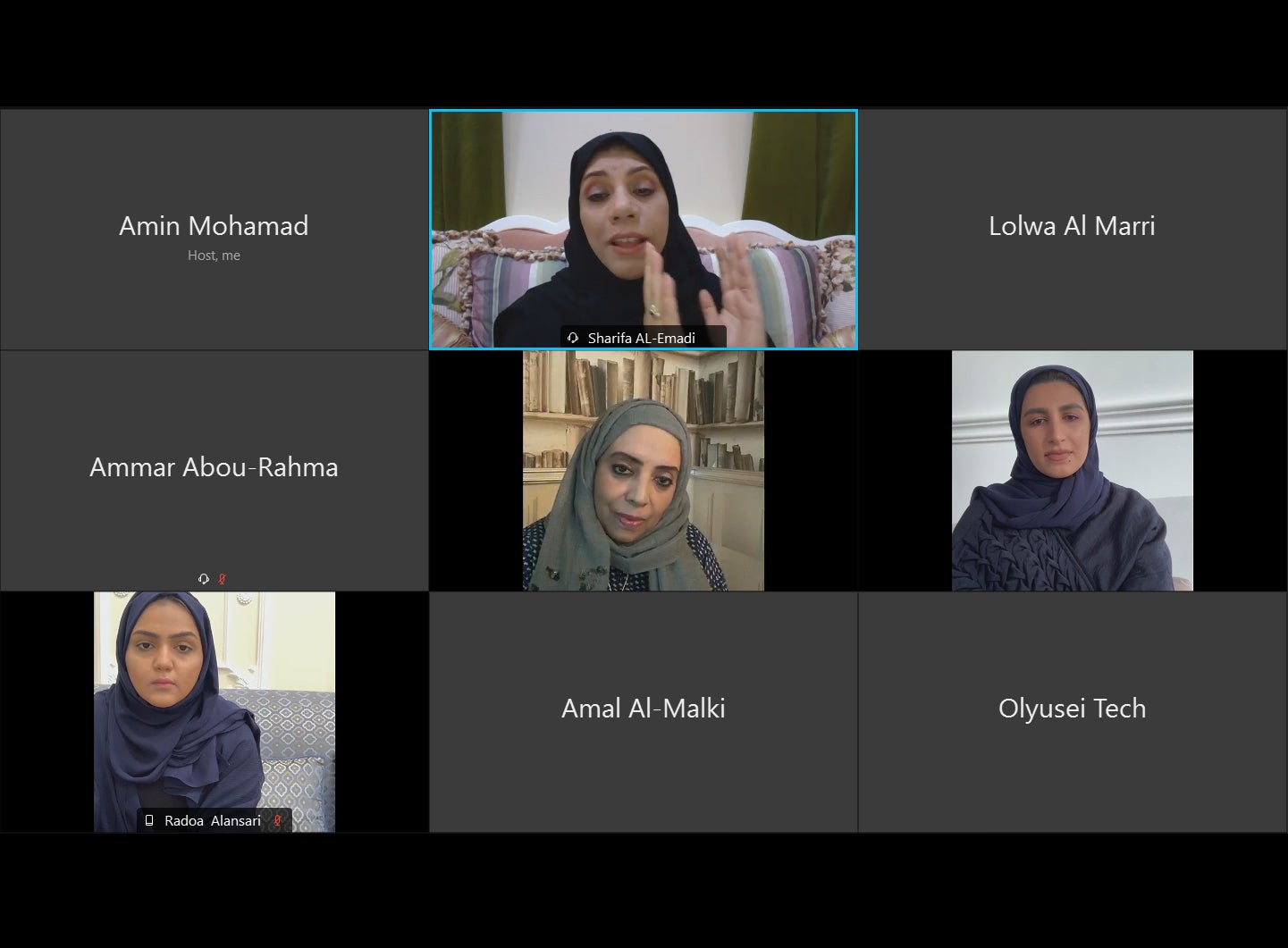
College of Humanities and Social Sciences Continues Women’s Affairs Series by Highlighting Changing Roles Amid COVID-19
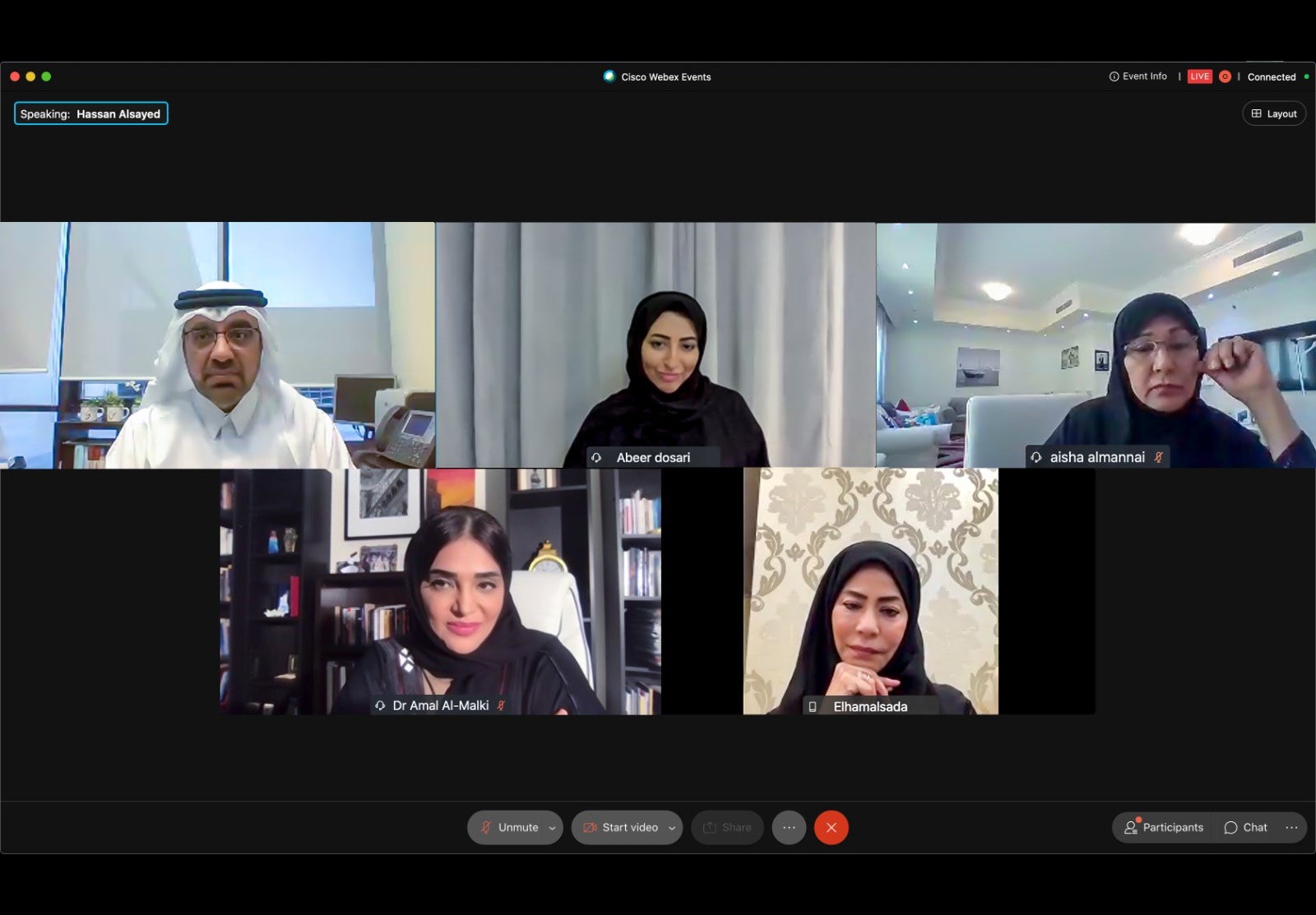
College of Humanities and Social Sciences Launches Qatari Women’s Affairs Series with Inaugural Webinar on Shura Council Elections

College of Humanities and Social Sciences Webinar Discusses Oxfam Report on Safety of Digital Spaces

HBKU TII’s Translation and Training Center Unveils Continuing Professional Development Workshops

College of Humanities and Social Sciences Announces New Advisory Board Members

College of Humanities and Social Sciences Considers Impact of Gender Quotas on Women’s Political Participation

College of Humanities and Social Sciences Opens Application for High-Level Training Strengthening Qatari Women’s Political Participation

TII’s Language Center at HBKU Shares Arabic Language Expertise with Joutsenon Opisto, Finland Under New Agreement

EU Ambassador Highlights Need for Youth Engagement at HBKU College of Humanities and Social Sciences Talk

TII Hosts 11th International Translation Conference Focusing on the Impact of Accelerated Digitization During the Pandemic

College of Humanities and Social Sciences Continues Women’s Affairs Series by Highlighting Changing Roles Amid COVID-19

College of Humanities and Social Sciences Launches Qatari Women’s Affairs Series with Inaugural Webinar on Shura Council Elections

College of Humanities and Social Sciences Webinar Discusses Oxfam Report on Safety of Digital Spaces

HBKU TII’s Translation and Training Center Unveils Continuing Professional Development Workshops

College of Humanities and Social Sciences Announces New Advisory Board Members

College of Humanities and Social Sciences Considers Impact of Gender Quotas on Women’s Political Participation

College of Humanities and Social Sciences Opens Application for High-Level Training Strengthening Qatari Women’s Political Participation

TII’s Language Center at HBKU Shares Arabic Language Expertise with Joutsenon Opisto, Finland Under New Agreement

EU Ambassador Highlights Need for Youth Engagement at HBKU College of Humanities and Social Sciences Talk

TII Hosts 11th International Translation Conference Focusing on the Impact of Accelerated Digitization During the Pandemic

College of Humanities and Social Sciences Continues Women’s Affairs Series by Highlighting Changing Roles Amid COVID-19

College of Humanities and Social Sciences Launches Qatari Women’s Affairs Series with Inaugural Webinar on Shura Council Elections

College of Humanities and Social Sciences Webinar Discusses Oxfam Report on Safety of Digital Spaces

HBKU TII’s Translation and Training Center Unveils Continuing Professional Development Workshops

College of Humanities and Social Sciences Announces New Advisory Board Members

College of Humanities and Social Sciences Considers Impact of Gender Quotas on Women’s Political Participation

College of Humanities and Social Sciences Opens Application for High-Level Training Strengthening Qatari Women’s Political Participation

TII’s Language Center at HBKU Shares Arabic Language Expertise with Joutsenon Opisto, Finland Under New Agreement

EU Ambassador Highlights Need for Youth Engagement at HBKU College of Humanities and Social Sciences Talk

TII Hosts 11th International Translation Conference Focusing on the Impact of Accelerated Digitization During the Pandemic

College of Humanities and Social Sciences Continues Women’s Affairs Series by Highlighting Changing Roles Amid COVID-19

College of Humanities and Social Sciences Launches Qatari Women’s Affairs Series with Inaugural Webinar on Shura Council Elections

College of Humanities and Social Sciences Webinar Discusses Oxfam Report on Safety of Digital Spaces

HBKU TII’s Translation and Training Center Unveils Continuing Professional Development Workshops

College of Humanities and Social Sciences Announces New Advisory Board Members

College of Humanities and Social Sciences Considers Impact of Gender Quotas on Women’s Political Participation

College of Humanities and Social Sciences Opens Application for High-Level Training Strengthening Qatari Women’s Political Participation

TII’s Language Center at HBKU Shares Arabic Language Expertise with Joutsenon Opisto, Finland Under New Agreement

EU Ambassador Highlights Need for Youth Engagement at HBKU College of Humanities and Social Sciences Talk

TII Hosts 11th International Translation Conference Focusing on the Impact of Accelerated Digitization During the Pandemic

College of Humanities and Social Sciences Continues Women’s Affairs Series by Highlighting Changing Roles Amid COVID-19

College of Humanities and Social Sciences Launches Qatari Women’s Affairs Series with Inaugural Webinar on Shura Council Elections

College of Humanities and Social Sciences Webinar Discusses Oxfam Report on Safety of Digital Spaces

HBKU TII’s Translation and Training Center Unveils Continuing Professional Development Workshops

College of Humanities and Social Sciences Announces New Advisory Board Members

College of Humanities and Social Sciences Considers Impact of Gender Quotas on Women’s Political Participation

College of Humanities and Social Sciences Opens Application for High-Level Training Strengthening Qatari Women’s Political Participation

TII’s Language Center at HBKU Shares Arabic Language Expertise with Joutsenon Opisto, Finland Under New Agreement

EU Ambassador Highlights Need for Youth Engagement at HBKU College of Humanities and Social Sciences Talk

TII Hosts 11th International Translation Conference Focusing on the Impact of Accelerated Digitization During the Pandemic

College of Humanities and Social Sciences Continues Women’s Affairs Series by Highlighting Changing Roles Amid COVID-19

College of Humanities and Social Sciences Launches Qatari Women’s Affairs Series with Inaugural Webinar on Shura Council Elections

College of Humanities and Social Sciences Webinar Discusses Oxfam Report on Safety of Digital Spaces

HBKU TII’s Translation and Training Center Unveils Continuing Professional Development Workshops

College of Humanities and Social Sciences Announces New Advisory Board Members

College of Humanities and Social Sciences Considers Impact of Gender Quotas on Women’s Political Participation

College of Humanities and Social Sciences Opens Application for High-Level Training Strengthening Qatari Women’s Political Participation

TII’s Language Center at HBKU Shares Arabic Language Expertise with Joutsenon Opisto, Finland Under New Agreement

EU Ambassador Highlights Need for Youth Engagement at HBKU College of Humanities and Social Sciences Talk

TII Hosts 11th International Translation Conference Focusing on the Impact of Accelerated Digitization During the Pandemic

College of Humanities and Social Sciences Continues Women’s Affairs Series by Highlighting Changing Roles Amid COVID-19

College of Humanities and Social Sciences Launches Qatari Women’s Affairs Series with Inaugural Webinar on Shura Council Elections

College of Humanities and Social Sciences Webinar Discusses Oxfam Report on Safety of Digital Spaces

HBKU TII’s Translation and Training Center Unveils Continuing Professional Development Workshops

College of Humanities and Social Sciences Announces New Advisory Board Members

College of Humanities and Social Sciences Considers Impact of Gender Quotas on Women’s Political Participation

College of Humanities and Social Sciences Opens Application for High-Level Training Strengthening Qatari Women’s Political Participation

TII’s Language Center at HBKU Shares Arabic Language Expertise with Joutsenon Opisto, Finland Under New Agreement

EU Ambassador Highlights Need for Youth Engagement at HBKU College of Humanities and Social Sciences Talk

TII Hosts 11th International Translation Conference Focusing on the Impact of Accelerated Digitization During the Pandemic

College of Humanities and Social Sciences Continues Women’s Affairs Series by Highlighting Changing Roles Amid COVID-19

College of Humanities and Social Sciences Launches Qatari Women’s Affairs Series with Inaugural Webinar on Shura Council Elections

College of Humanities and Social Sciences Webinar Discusses Oxfam Report on Safety of Digital Spaces

HBKU TII’s Translation and Training Center Unveils Continuing Professional Development Workshops

College of Humanities and Social Sciences Announces New Advisory Board Members

College of Humanities and Social Sciences Considers Impact of Gender Quotas on Women’s Political Participation

College of Humanities and Social Sciences Opens Application for High-Level Training Strengthening Qatari Women’s Political Participation

TII’s Language Center at HBKU Shares Arabic Language Expertise with Joutsenon Opisto, Finland Under New Agreement

EU Ambassador Highlights Need for Youth Engagement at HBKU College of Humanities and Social Sciences Talk

TII Hosts 11th International Translation Conference Focusing on the Impact of Accelerated Digitization During the Pandemic

College of Humanities and Social Sciences Continues Women’s Affairs Series by Highlighting Changing Roles Amid COVID-19

College of Humanities and Social Sciences Launches Qatari Women’s Affairs Series with Inaugural Webinar on Shura Council Elections

College of Humanities and Social Sciences Webinar Discusses Oxfam Report on Safety of Digital Spaces

HBKU TII’s Translation and Training Center Unveils Continuing Professional Development Workshops

College of Humanities and Social Sciences Announces New Advisory Board Members

College of Humanities and Social Sciences Considers Impact of Gender Quotas on Women’s Political Participation

College of Humanities and Social Sciences Opens Application for High-Level Training Strengthening Qatari Women’s Political Participation

TII’s Language Center at HBKU Shares Arabic Language Expertise with Joutsenon Opisto, Finland Under New Agreement

EU Ambassador Highlights Need for Youth Engagement at HBKU College of Humanities and Social Sciences Talk

TII Hosts 11th International Translation Conference Focusing on the Impact of Accelerated Digitization During the Pandemic

College of Humanities and Social Sciences Continues Women’s Affairs Series by Highlighting Changing Roles Amid COVID-19

College of Humanities and Social Sciences Launches Qatari Women’s Affairs Series with Inaugural Webinar on Shura Council Elections

College of Humanities and Social Sciences Webinar Discusses Oxfam Report on Safety of Digital Spaces

HBKU TII’s Translation and Training Center Unveils Continuing Professional Development Workshops

College of Humanities and Social Sciences Announces New Advisory Board Members

College of Humanities and Social Sciences Considers Impact of Gender Quotas on Women’s Political Participation

College of Humanities and Social Sciences Opens Application for High-Level Training Strengthening Qatari Women’s Political Participation

TII’s Language Center at HBKU Shares Arabic Language Expertise with Joutsenon Opisto, Finland Under New Agreement

EU Ambassador Highlights Need for Youth Engagement at HBKU College of Humanities and Social Sciences Talk

TII Hosts 11th International Translation Conference Focusing on the Impact of Accelerated Digitization During the Pandemic

College of Humanities and Social Sciences Continues Women’s Affairs Series by Highlighting Changing Roles Amid COVID-19

College of Humanities and Social Sciences Launches Qatari Women’s Affairs Series with Inaugural Webinar on Shura Council Elections

College of Humanities and Social Sciences Webinar Discusses Oxfam Report on Safety of Digital Spaces

HBKU TII’s Translation and Training Center Unveils Continuing Professional Development Workshops

College of Humanities and Social Sciences Announces New Advisory Board Members

College of Humanities and Social Sciences Considers Impact of Gender Quotas on Women’s Political Participation

College of Humanities and Social Sciences Opens Application for High-Level Training Strengthening Qatari Women’s Political Participation

TII’s Language Center at HBKU Shares Arabic Language Expertise with Joutsenon Opisto, Finland Under New Agreement

EU Ambassador Highlights Need for Youth Engagement at HBKU College of Humanities and Social Sciences Talk

TII Hosts 11th International Translation Conference Focusing on the Impact of Accelerated Digitization During the Pandemic

College of Humanities and Social Sciences Continues Women’s Affairs Series by Highlighting Changing Roles Amid COVID-19

College of Humanities and Social Sciences Launches Qatari Women’s Affairs Series with Inaugural Webinar on Shura Council Elections

College of Humanities and Social Sciences Webinar Discusses Oxfam Report on Safety of Digital Spaces

HBKU TII’s Translation and Training Center Unveils Continuing Professional Development Workshops

College of Humanities and Social Sciences Announces New Advisory Board Members

College of Humanities and Social Sciences Considers Impact of Gender Quotas on Women’s Political Participation

College of Humanities and Social Sciences Opens Application for High-Level Training Strengthening Qatari Women’s Political Participation

TII’s Language Center at HBKU Shares Arabic Language Expertise with Joutsenon Opisto, Finland Under New Agreement

EU Ambassador Highlights Need for Youth Engagement at HBKU College of Humanities and Social Sciences Talk

TII Hosts 11th International Translation Conference Focusing on the Impact of Accelerated Digitization During the Pandemic

College of Humanities and Social Sciences Continues Women’s Affairs Series by Highlighting Changing Roles Amid COVID-19

College of Humanities and Social Sciences Launches Qatari Women’s Affairs Series with Inaugural Webinar on Shura Council Elections

College of Humanities and Social Sciences Webinar Discusses Oxfam Report on Safety of Digital Spaces

HBKU TII’s Translation and Training Center Unveils Continuing Professional Development Workshops

College of Humanities and Social Sciences Announces New Advisory Board Members

College of Humanities and Social Sciences Considers Impact of Gender Quotas on Women’s Political Participation

College of Humanities and Social Sciences Opens Application for High-Level Training Strengthening Qatari Women’s Political Participation

TII’s Language Center at HBKU Shares Arabic Language Expertise with Joutsenon Opisto, Finland Under New Agreement

EU Ambassador Highlights Need for Youth Engagement at HBKU College of Humanities and Social Sciences Talk

TII Hosts 11th International Translation Conference Focusing on the Impact of Accelerated Digitization During the Pandemic

College of Humanities and Social Sciences Continues Women’s Affairs Series by Highlighting Changing Roles Amid COVID-19

College of Humanities and Social Sciences Launches Qatari Women’s Affairs Series with Inaugural Webinar on Shura Council Elections

College of Humanities and Social Sciences Webinar Discusses Oxfam Report on Safety of Digital Spaces

HBKU TII’s Translation and Training Center Unveils Continuing Professional Development Workshops

College of Humanities and Social Sciences Announces New Advisory Board Members

College of Humanities and Social Sciences Considers Impact of Gender Quotas on Women’s Political Participation

College of Humanities and Social Sciences Opens Application for High-Level Training Strengthening Qatari Women’s Political Participation

TII’s Language Center at HBKU Shares Arabic Language Expertise with Joutsenon Opisto, Finland Under New Agreement

EU Ambassador Highlights Need for Youth Engagement at HBKU College of Humanities and Social Sciences Talk

TII Hosts 11th International Translation Conference Focusing on the Impact of Accelerated Digitization During the Pandemic

College of Humanities and Social Sciences Continues Women’s Affairs Series by Highlighting Changing Roles Amid COVID-19

College of Humanities and Social Sciences Launches Qatari Women’s Affairs Series with Inaugural Webinar on Shura Council Elections

College of Humanities and Social Sciences Webinar Discusses Oxfam Report on Safety of Digital Spaces

HBKU TII’s Translation and Training Center Unveils Continuing Professional Development Workshops

College of Humanities and Social Sciences Announces New Advisory Board Members

College of Humanities and Social Sciences Considers Impact of Gender Quotas on Women’s Political Participation

College of Humanities and Social Sciences Opens Application for High-Level Training Strengthening Qatari Women’s Political Participation

TII’s Language Center at HBKU Shares Arabic Language Expertise with Joutsenon Opisto, Finland Under New Agreement

EU Ambassador Highlights Need for Youth Engagement at HBKU College of Humanities and Social Sciences Talk

TII Hosts 11th International Translation Conference Focusing on the Impact of Accelerated Digitization During the Pandemic

College of Humanities and Social Sciences Continues Women’s Affairs Series by Highlighting Changing Roles Amid COVID-19

College of Humanities and Social Sciences Launches Qatari Women’s Affairs Series with Inaugural Webinar on Shura Council Elections

College of Humanities and Social Sciences Webinar Discusses Oxfam Report on Safety of Digital Spaces

HBKU TII’s Translation and Training Center Unveils Continuing Professional Development Workshops

College of Humanities and Social Sciences Announces New Advisory Board Members

College of Humanities and Social Sciences Considers Impact of Gender Quotas on Women’s Political Participation

College of Humanities and Social Sciences Opens Application for High-Level Training Strengthening Qatari Women’s Political Participation

TII’s Language Center at HBKU Shares Arabic Language Expertise with Joutsenon Opisto, Finland Under New Agreement

EU Ambassador Highlights Need for Youth Engagement at HBKU College of Humanities and Social Sciences Talk

TII Hosts 11th International Translation Conference Focusing on the Impact of Accelerated Digitization During the Pandemic

College of Humanities and Social Sciences Continues Women’s Affairs Series by Highlighting Changing Roles Amid COVID-19

College of Humanities and Social Sciences Launches Qatari Women’s Affairs Series with Inaugural Webinar on Shura Council Elections

College of Humanities and Social Sciences Webinar Discusses Oxfam Report on Safety of Digital Spaces

HBKU TII’s Translation and Training Center Unveils Continuing Professional Development Workshops

College of Humanities and Social Sciences Announces New Advisory Board Members

College of Humanities and Social Sciences Considers Impact of Gender Quotas on Women’s Political Participation

College of Humanities and Social Sciences Opens Application for High-Level Training Strengthening Qatari Women’s Political Participation

TII’s Language Center at HBKU Shares Arabic Language Expertise with Joutsenon Opisto, Finland Under New Agreement

EU Ambassador Highlights Need for Youth Engagement at HBKU College of Humanities and Social Sciences Talk

TII Hosts 11th International Translation Conference Focusing on the Impact of Accelerated Digitization During the Pandemic

College of Humanities and Social Sciences Continues Women’s Affairs Series by Highlighting Changing Roles Amid COVID-19

College of Humanities and Social Sciences Launches Qatari Women’s Affairs Series with Inaugural Webinar on Shura Council Elections

College of Humanities and Social Sciences Webinar Discusses Oxfam Report on Safety of Digital Spaces

HBKU TII’s Translation and Training Center Unveils Continuing Professional Development Workshops

College of Humanities and Social Sciences Announces New Advisory Board Members

College of Humanities and Social Sciences Considers Impact of Gender Quotas on Women’s Political Participation

College of Humanities and Social Sciences Opens Application for High-Level Training Strengthening Qatari Women’s Political Participation

TII’s Language Center at HBKU Shares Arabic Language Expertise with Joutsenon Opisto, Finland Under New Agreement

EU Ambassador Highlights Need for Youth Engagement at HBKU College of Humanities and Social Sciences Talk

TII Hosts 11th International Translation Conference Focusing on the Impact of Accelerated Digitization During the Pandemic

College of Humanities and Social Sciences Continues Women’s Affairs Series by Highlighting Changing Roles Amid COVID-19

College of Humanities and Social Sciences Launches Qatari Women’s Affairs Series with Inaugural Webinar on Shura Council Elections

College of Humanities and Social Sciences Webinar Discusses Oxfam Report on Safety of Digital Spaces

HBKU TII’s Translation and Training Center Unveils Continuing Professional Development Workshops

College of Humanities and Social Sciences Announces New Advisory Board Members

College of Humanities and Social Sciences Considers Impact of Gender Quotas on Women’s Political Participation

College of Humanities and Social Sciences Opens Application for High-Level Training Strengthening Qatari Women’s Political Participation

TII’s Language Center at HBKU Shares Arabic Language Expertise with Joutsenon Opisto, Finland Under New Agreement

EU Ambassador Highlights Need for Youth Engagement at HBKU College of Humanities and Social Sciences Talk

TII Hosts 11th International Translation Conference Focusing on the Impact of Accelerated Digitization During the Pandemic

College of Humanities and Social Sciences Continues Women’s Affairs Series by Highlighting Changing Roles Amid COVID-19

College of Humanities and Social Sciences Launches Qatari Women’s Affairs Series with Inaugural Webinar on Shura Council Elections

College of Humanities and Social Sciences Webinar Discusses Oxfam Report on Safety of Digital Spaces

HBKU TII’s Translation and Training Center Unveils Continuing Professional Development Workshops

College of Humanities and Social Sciences Announces New Advisory Board Members

College of Humanities and Social Sciences Considers Impact of Gender Quotas on Women’s Political Participation

College of Humanities and Social Sciences Opens Application for High-Level Training Strengthening Qatari Women’s Political Participation

TII’s Language Center at HBKU Shares Arabic Language Expertise with Joutsenon Opisto, Finland Under New Agreement

EU Ambassador Highlights Need for Youth Engagement at HBKU College of Humanities and Social Sciences Talk

TII Hosts 11th International Translation Conference Focusing on the Impact of Accelerated Digitization During the Pandemic

College of Humanities and Social Sciences Continues Women’s Affairs Series by Highlighting Changing Roles Amid COVID-19

College of Humanities and Social Sciences Launches Qatari Women’s Affairs Series with Inaugural Webinar on Shura Council Elections

College of Humanities and Social Sciences Webinar Discusses Oxfam Report on Safety of Digital Spaces

HBKU TII’s Translation and Training Center Unveils Continuing Professional Development Workshops

College of Humanities and Social Sciences Announces New Advisory Board Members

College of Humanities and Social Sciences Considers Impact of Gender Quotas on Women’s Political Participation

College of Humanities and Social Sciences Opens Application for High-Level Training Strengthening Qatari Women’s Political Participation

TII’s Language Center at HBKU Shares Arabic Language Expertise with Joutsenon Opisto, Finland Under New Agreement

EU Ambassador Highlights Need for Youth Engagement at HBKU College of Humanities and Social Sciences Talk

TII Hosts 11th International Translation Conference Focusing on the Impact of Accelerated Digitization During the Pandemic

College of Humanities and Social Sciences Continues Women’s Affairs Series by Highlighting Changing Roles Amid COVID-19

College of Humanities and Social Sciences Launches Qatari Women’s Affairs Series with Inaugural Webinar on Shura Council Elections

College of Humanities and Social Sciences Webinar Discusses Oxfam Report on Safety of Digital Spaces

HBKU TII’s Translation and Training Center Unveils Continuing Professional Development Workshops

College of Humanities and Social Sciences Announces New Advisory Board Members

College of Humanities and Social Sciences Considers Impact of Gender Quotas on Women’s Political Participation

College of Humanities and Social Sciences Opens Application for High-Level Training Strengthening Qatari Women’s Political Participation

TII’s Language Center at HBKU Shares Arabic Language Expertise with Joutsenon Opisto, Finland Under New Agreement

EU Ambassador Highlights Need for Youth Engagement at HBKU College of Humanities and Social Sciences Talk

TII Hosts 11th International Translation Conference Focusing on the Impact of Accelerated Digitization During the Pandemic

College of Humanities and Social Sciences Continues Women’s Affairs Series by Highlighting Changing Roles Amid COVID-19

College of Humanities and Social Sciences Launches Qatari Women’s Affairs Series with Inaugural Webinar on Shura Council Elections

College of Humanities and Social Sciences Webinar Discusses Oxfam Report on Safety of Digital Spaces

HBKU TII’s Translation and Training Center Unveils Continuing Professional Development Workshops

College of Humanities and Social Sciences Announces New Advisory Board Members

College of Humanities and Social Sciences Considers Impact of Gender Quotas on Women’s Political Participation

College of Humanities and Social Sciences Opens Application for High-Level Training Strengthening Qatari Women’s Political Participation

TII’s Language Center at HBKU Shares Arabic Language Expertise with Joutsenon Opisto, Finland Under New Agreement

EU Ambassador Highlights Need for Youth Engagement at HBKU College of Humanities and Social Sciences Talk

TII Hosts 11th International Translation Conference Focusing on the Impact of Accelerated Digitization During the Pandemic

College of Humanities and Social Sciences Continues Women’s Affairs Series by Highlighting Changing Roles Amid COVID-19

College of Humanities and Social Sciences Launches Qatari Women’s Affairs Series with Inaugural Webinar on Shura Council Elections

College of Humanities and Social Sciences Webinar Discusses Oxfam Report on Safety of Digital Spaces

HBKU TII’s Translation and Training Center Unveils Continuing Professional Development Workshops

College of Humanities and Social Sciences Announces New Advisory Board Members

College of Humanities and Social Sciences Considers Impact of Gender Quotas on Women’s Political Participation

College of Humanities and Social Sciences Opens Application for High-Level Training Strengthening Qatari Women’s Political Participation

TII’s Language Center at HBKU Shares Arabic Language Expertise with Joutsenon Opisto, Finland Under New Agreement

EU Ambassador Highlights Need for Youth Engagement at HBKU College of Humanities and Social Sciences Talk

TII Hosts 11th International Translation Conference Focusing on the Impact of Accelerated Digitization During the Pandemic

College of Humanities and Social Sciences Continues Women’s Affairs Series by Highlighting Changing Roles Amid COVID-19

College of Humanities and Social Sciences Launches Qatari Women’s Affairs Series with Inaugural Webinar on Shura Council Elections

College of Humanities and Social Sciences Webinar Discusses Oxfam Report on Safety of Digital Spaces

HBKU TII’s Translation and Training Center Unveils Continuing Professional Development Workshops

College of Humanities and Social Sciences Announces New Advisory Board Members

College of Humanities and Social Sciences Considers Impact of Gender Quotas on Women’s Political Participation

College of Humanities and Social Sciences Opens Application for High-Level Training Strengthening Qatari Women’s Political Participation

TII’s Language Center at HBKU Shares Arabic Language Expertise with Joutsenon Opisto, Finland Under New Agreement

EU Ambassador Highlights Need for Youth Engagement at HBKU College of Humanities and Social Sciences Talk

TII Hosts 11th International Translation Conference Focusing on the Impact of Accelerated Digitization During the Pandemic

College of Humanities and Social Sciences Continues Women’s Affairs Series by Highlighting Changing Roles Amid COVID-19

College of Humanities and Social Sciences Launches Qatari Women’s Affairs Series with Inaugural Webinar on Shura Council Elections

College of Humanities and Social Sciences Webinar Discusses Oxfam Report on Safety of Digital Spaces

HBKU TII’s Translation and Training Center Unveils Continuing Professional Development Workshops

College of Humanities and Social Sciences Announces New Advisory Board Members

College of Humanities and Social Sciences Considers Impact of Gender Quotas on Women’s Political Participation

College of Humanities and Social Sciences Opens Application for High-Level Training Strengthening Qatari Women’s Political Participation

TII’s Language Center at HBKU Shares Arabic Language Expertise with Joutsenon Opisto, Finland Under New Agreement

EU Ambassador Highlights Need for Youth Engagement at HBKU College of Humanities and Social Sciences Talk

TII Hosts 11th International Translation Conference Focusing on the Impact of Accelerated Digitization During the Pandemic

College of Humanities and Social Sciences Continues Women’s Affairs Series by Highlighting Changing Roles Amid COVID-19

College of Humanities and Social Sciences Launches Qatari Women’s Affairs Series with Inaugural Webinar on Shura Council Elections

College of Humanities and Social Sciences Webinar Discusses Oxfam Report on Safety of Digital Spaces

HBKU TII’s Translation and Training Center Unveils Continuing Professional Development Workshops

College of Humanities and Social Sciences Announces New Advisory Board Members

College of Humanities and Social Sciences Considers Impact of Gender Quotas on Women’s Political Participation

College of Humanities and Social Sciences Opens Application for High-Level Training Strengthening Qatari Women’s Political Participation

TII’s Language Center at HBKU Shares Arabic Language Expertise with Joutsenon Opisto, Finland Under New Agreement

EU Ambassador Highlights Need for Youth Engagement at HBKU College of Humanities and Social Sciences Talk

TII Hosts 11th International Translation Conference Focusing on the Impact of Accelerated Digitization During the Pandemic

College of Humanities and Social Sciences Continues Women’s Affairs Series by Highlighting Changing Roles Amid COVID-19

College of Humanities and Social Sciences Launches Qatari Women’s Affairs Series with Inaugural Webinar on Shura Council Elections

College of Humanities and Social Sciences Webinar Discusses Oxfam Report on Safety of Digital Spaces

HBKU TII’s Translation and Training Center Unveils Continuing Professional Development Workshops

College of Humanities and Social Sciences Announces New Advisory Board Members

College of Humanities and Social Sciences Considers Impact of Gender Quotas on Women’s Political Participation

College of Humanities and Social Sciences Opens Application for High-Level Training Strengthening Qatari Women’s Political Participation

TII’s Language Center at HBKU Shares Arabic Language Expertise with Joutsenon Opisto, Finland Under New Agreement

EU Ambassador Highlights Need for Youth Engagement at HBKU College of Humanities and Social Sciences Talk

TII Hosts 11th International Translation Conference Focusing on the Impact of Accelerated Digitization During the Pandemic

College of Humanities and Social Sciences Continues Women’s Affairs Series by Highlighting Changing Roles Amid COVID-19

College of Humanities and Social Sciences Launches Qatari Women’s Affairs Series with Inaugural Webinar on Shura Council Elections

College of Humanities and Social Sciences Webinar Discusses Oxfam Report on Safety of Digital Spaces

HBKU TII’s Translation and Training Center Unveils Continuing Professional Development Workshops

College of Humanities and Social Sciences Announces New Advisory Board Members

College of Humanities and Social Sciences Considers Impact of Gender Quotas on Women’s Political Participation

College of Humanities and Social Sciences Opens Application for High-Level Training Strengthening Qatari Women’s Political Participation

TII’s Language Center at HBKU Shares Arabic Language Expertise with Joutsenon Opisto, Finland Under New Agreement

EU Ambassador Highlights Need for Youth Engagement at HBKU College of Humanities and Social Sciences Talk

TII Hosts 11th International Translation Conference Focusing on the Impact of Accelerated Digitization During the Pandemic

College of Humanities and Social Sciences Continues Women’s Affairs Series by Highlighting Changing Roles Amid COVID-19

College of Humanities and Social Sciences Launches Qatari Women’s Affairs Series with Inaugural Webinar on Shura Council Elections

College of Humanities and Social Sciences Webinar Discusses Oxfam Report on Safety of Digital Spaces

HBKU TII’s Translation and Training Center Unveils Continuing Professional Development Workshops

College of Humanities and Social Sciences Announces New Advisory Board Members

College of Humanities and Social Sciences Considers Impact of Gender Quotas on Women’s Political Participation

College of Humanities and Social Sciences Opens Application for High-Level Training Strengthening Qatari Women’s Political Participation

TII’s Language Center at HBKU Shares Arabic Language Expertise with Joutsenon Opisto, Finland Under New Agreement

EU Ambassador Highlights Need for Youth Engagement at HBKU College of Humanities and Social Sciences Talk

TII Hosts 11th International Translation Conference Focusing on the Impact of Accelerated Digitization During the Pandemic

College of Humanities and Social Sciences Continues Women’s Affairs Series by Highlighting Changing Roles Amid COVID-19

College of Humanities and Social Sciences Launches Qatari Women’s Affairs Series with Inaugural Webinar on Shura Council Elections

College of Humanities and Social Sciences Webinar Discusses Oxfam Report on Safety of Digital Spaces

HBKU TII’s Translation and Training Center Unveils Continuing Professional Development Workshops

College of Humanities and Social Sciences Announces New Advisory Board Members

College of Humanities and Social Sciences Considers Impact of Gender Quotas on Women’s Political Participation

College of Humanities and Social Sciences Opens Application for High-Level Training Strengthening Qatari Women’s Political Participation

TII’s Language Center at HBKU Shares Arabic Language Expertise with Joutsenon Opisto, Finland Under New Agreement

EU Ambassador Highlights Need for Youth Engagement at HBKU College of Humanities and Social Sciences Talk

TII Hosts 11th International Translation Conference Focusing on the Impact of Accelerated Digitization During the Pandemic

College of Humanities and Social Sciences Continues Women’s Affairs Series by Highlighting Changing Roles Amid COVID-19

College of Humanities and Social Sciences Launches Qatari Women’s Affairs Series with Inaugural Webinar on Shura Council Elections

College of Humanities and Social Sciences Webinar Discusses Oxfam Report on Safety of Digital Spaces

HBKU TII’s Translation and Training Center Unveils Continuing Professional Development Workshops

College of Humanities and Social Sciences Announces New Advisory Board Members

College of Humanities and Social Sciences Considers Impact of Gender Quotas on Women’s Political Participation

College of Humanities and Social Sciences Opens Application for High-Level Training Strengthening Qatari Women’s Political Participation

TII’s Language Center at HBKU Shares Arabic Language Expertise with Joutsenon Opisto, Finland Under New Agreement

EU Ambassador Highlights Need for Youth Engagement at HBKU College of Humanities and Social Sciences Talk

TII Hosts 11th International Translation Conference Focusing on the Impact of Accelerated Digitization During the Pandemic

College of Humanities and Social Sciences Continues Women’s Affairs Series by Highlighting Changing Roles Amid COVID-19

College of Humanities and Social Sciences Launches Qatari Women’s Affairs Series with Inaugural Webinar on Shura Council Elections

College of Humanities and Social Sciences Webinar Discusses Oxfam Report on Safety of Digital Spaces

HBKU TII’s Translation and Training Center Unveils Continuing Professional Development Workshops

College of Humanities and Social Sciences Announces New Advisory Board Members

College of Humanities and Social Sciences Considers Impact of Gender Quotas on Women’s Political Participation

College of Humanities and Social Sciences Opens Application for High-Level Training Strengthening Qatari Women’s Political Participation

TII’s Language Center at HBKU Shares Arabic Language Expertise with Joutsenon Opisto, Finland Under New Agreement

EU Ambassador Highlights Need for Youth Engagement at HBKU College of Humanities and Social Sciences Talk

TII Hosts 11th International Translation Conference Focusing on the Impact of Accelerated Digitization During the Pandemic

College of Humanities and Social Sciences Continues Women’s Affairs Series by Highlighting Changing Roles Amid COVID-19

College of Humanities and Social Sciences Launches Qatari Women’s Affairs Series with Inaugural Webinar on Shura Council Elections

College of Humanities and Social Sciences Webinar Discusses Oxfam Report on Safety of Digital Spaces

HBKU TII’s Translation and Training Center Unveils Continuing Professional Development Workshops

College of Humanities and Social Sciences Announces New Advisory Board Members

College of Humanities and Social Sciences Considers Impact of Gender Quotas on Women’s Political Participation

College of Humanities and Social Sciences Opens Application for High-Level Training Strengthening Qatari Women’s Political Participation

TII’s Language Center at HBKU Shares Arabic Language Expertise with Joutsenon Opisto, Finland Under New Agreement

EU Ambassador Highlights Need for Youth Engagement at HBKU College of Humanities and Social Sciences Talk

TII Hosts 11th International Translation Conference Focusing on the Impact of Accelerated Digitization During the Pandemic

College of Humanities and Social Sciences Continues Women’s Affairs Series by Highlighting Changing Roles Amid COVID-19

College of Humanities and Social Sciences Launches Qatari Women’s Affairs Series with Inaugural Webinar on Shura Council Elections

College of Humanities and Social Sciences Webinar Discusses Oxfam Report on Safety of Digital Spaces

HBKU TII’s Translation and Training Center Unveils Continuing Professional Development Workshops

College of Humanities and Social Sciences Announces New Advisory Board Members

College of Humanities and Social Sciences Considers Impact of Gender Quotas on Women’s Political Participation

College of Humanities and Social Sciences Opens Application for High-Level Training Strengthening Qatari Women’s Political Participation

TII’s Language Center at HBKU Shares Arabic Language Expertise with Joutsenon Opisto, Finland Under New Agreement

EU Ambassador Highlights Need for Youth Engagement at HBKU College of Humanities and Social Sciences Talk

TII Hosts 11th International Translation Conference Focusing on the Impact of Accelerated Digitization During the Pandemic

College of Humanities and Social Sciences Continues Women’s Affairs Series by Highlighting Changing Roles Amid COVID-19

College of Humanities and Social Sciences Launches Qatari Women’s Affairs Series with Inaugural Webinar on Shura Council Elections

College of Humanities and Social Sciences Webinar Discusses Oxfam Report on Safety of Digital Spaces

HBKU TII’s Translation and Training Center Unveils Continuing Professional Development Workshops

College of Humanities and Social Sciences Announces New Advisory Board Members

College of Humanities and Social Sciences Considers Impact of Gender Quotas on Women’s Political Participation

College of Humanities and Social Sciences Opens Application for High-Level Training Strengthening Qatari Women’s Political Participation

TII’s Language Center at HBKU Shares Arabic Language Expertise with Joutsenon Opisto, Finland Under New Agreement

EU Ambassador Highlights Need for Youth Engagement at HBKU College of Humanities and Social Sciences Talk

TII Hosts 11th International Translation Conference Focusing on the Impact of Accelerated Digitization During the Pandemic

College of Humanities and Social Sciences Continues Women’s Affairs Series by Highlighting Changing Roles Amid COVID-19

College of Humanities and Social Sciences Launches Qatari Women’s Affairs Series with Inaugural Webinar on Shura Council Elections

College of Humanities and Social Sciences Webinar Discusses Oxfam Report on Safety of Digital Spaces

HBKU TII’s Translation and Training Center Unveils Continuing Professional Development Workshops

College of Humanities and Social Sciences Announces New Advisory Board Members

College of Humanities and Social Sciences Considers Impact of Gender Quotas on Women’s Political Participation

College of Humanities and Social Sciences Opens Application for High-Level Training Strengthening Qatari Women’s Political Participation

TII’s Language Center at HBKU Shares Arabic Language Expertise with Joutsenon Opisto, Finland Under New Agreement

EU Ambassador Highlights Need for Youth Engagement at HBKU College of Humanities and Social Sciences Talk

TII Hosts 11th International Translation Conference Focusing on the Impact of Accelerated Digitization During the Pandemic

College of Humanities and Social Sciences Continues Women’s Affairs Series by Highlighting Changing Roles Amid COVID-19

College of Humanities and Social Sciences Launches Qatari Women’s Affairs Series with Inaugural Webinar on Shura Council Elections

College of Humanities and Social Sciences Webinar Discusses Oxfam Report on Safety of Digital Spaces

HBKU TII’s Translation and Training Center Unveils Continuing Professional Development Workshops

College of Humanities and Social Sciences Announces New Advisory Board Members

College of Humanities and Social Sciences Considers Impact of Gender Quotas on Women’s Political Participation

College of Humanities and Social Sciences Opens Application for High-Level Training Strengthening Qatari Women’s Political Participation

TII’s Language Center at HBKU Shares Arabic Language Expertise with Joutsenon Opisto, Finland Under New Agreement

EU Ambassador Highlights Need for Youth Engagement at HBKU College of Humanities and Social Sciences Talk

TII Hosts 11th International Translation Conference Focusing on the Impact of Accelerated Digitization During the Pandemic

College of Humanities and Social Sciences Continues Women’s Affairs Series by Highlighting Changing Roles Amid COVID-19

College of Humanities and Social Sciences Launches Qatari Women’s Affairs Series with Inaugural Webinar on Shura Council Elections

College of Humanities and Social Sciences Webinar Discusses Oxfam Report on Safety of Digital Spaces

HBKU TII’s Translation and Training Center Unveils Continuing Professional Development Workshops

College of Humanities and Social Sciences Announces New Advisory Board Members

College of Humanities and Social Sciences Considers Impact of Gender Quotas on Women’s Political Participation

College of Humanities and Social Sciences Opens Application for High-Level Training Strengthening Qatari Women’s Political Participation

TII’s Language Center at HBKU Shares Arabic Language Expertise with Joutsenon Opisto, Finland Under New Agreement

EU Ambassador Highlights Need for Youth Engagement at HBKU College of Humanities and Social Sciences Talk

TII Hosts 11th International Translation Conference Focusing on the Impact of Accelerated Digitization During the Pandemic

College of Humanities and Social Sciences Continues Women’s Affairs Series by Highlighting Changing Roles Amid COVID-19

College of Humanities and Social Sciences Launches Qatari Women’s Affairs Series with Inaugural Webinar on Shura Council Elections






